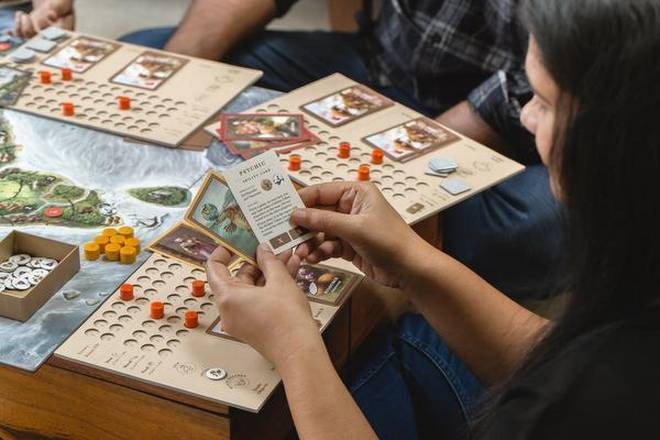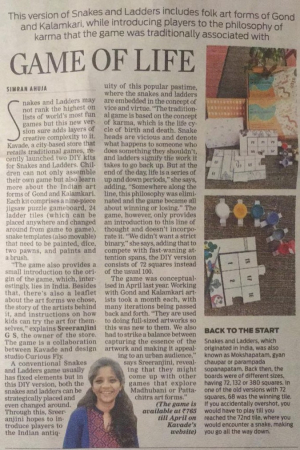From cards that call out social prejudice to Snakes and Ladders with karmic philosophy, these India-centric board games made their debut during the pandemic

Roll the dice, step back in time (Bharata 600 BC)
Caprisoned elephants, turbanned rajahs, shining swords, a quiver full of arrows, messenger pigeons and the glorious promise of war — you don’t need a magic carpet to travel back in time. Bharata 600 BC, a board game, will take you back to ancient India where many a kingdom’s fate was sealed by behind-the-scenes puppet masters.
Conceptualised by Cristina Maiorescu, ideated by Pallavi Nopany and illustrated by Ishan Trivedi, Bharata 600 BC takes players through a time in India where territories were enlarged via alliances, trade or battle. Played on a board that depicts the map of India in 600 BC, it shows the country at the end of the Vedic period, when 16 independent kingdoms were in power. Each player is assigned a kingdom and has to expand territory as the game progresses. Players choose their leadership persona and are then granted abilities to complement their personality.
This version of Snakes and Ladders includes folk art forms of Gond and Kalamkari, while introducing players to the philosophy of karma that the game was traditionally associated with
BENGALURU: Snakes and Ladders may not rank the highest on lists of world’s most fun games but this new version sure adds layers of creative complexity to it. Kavade, a city-based store that retails traditional games, recently launched two DIY kits for Snakes and Ladders. Children can not only assemble their own game but also learn more about the Indian art forms of Gond and Kalamkari. Each kit comprises a nine-piece jigsaw puzzle gameboard, 24 ladder tiles (which can be placed anywhere and changed around from game to game), snake templates (also movable) that need to be painted, dice, two pawns, and paints and
a brush.
Cultures & traditions are living ecosystems. There is much to be learnt through respect & observation of indigenous cultures & traditions. In the last few centuries, we have been witnessing the growing hazard of homogenization of cultures- similar livelihoods, identical constructions, eating habits, healthcare, consumer goods, and entertainment. As Helena Norberg Hodge aptly says “Diverse cultures from Alaska to Australia have been overrun by the industrial monoculture. The spread of industrial monoculture is a tragedy of many dimensions. With the destruction of each culture, we are erasing centuries of accumulated knowledge, and as diverse ethnic groups feel their identity threatened, conflict & social breakdown almost inevitable follow”. If culture were placed at the heart of development policies, we will assuredly be making way for an ecosystem-centered, humanitarian & inclusive development.








